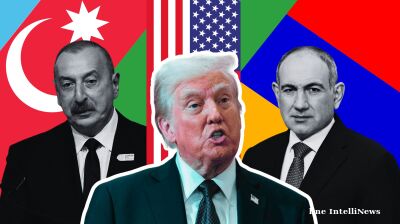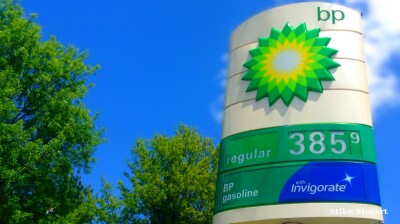Brazil's President Luiz Inácio Lula da Silva has pressed his French counterpart Emmanuel Macron to drop his opposition to the EU-Mercosur trade agreement, using a state visit to Paris on June 5 to advance a deal that has stalled over European agricultural concerns.
The Brazilian leader's direct appeal to Macron to "open your heart" to the accord came as he committed to securing ratification during Brazil's upcoming presidency of the South American trading bloc, which begins in July. Lula has said he will not leave office without concluding the agreement.
But Macron showed little willingness to budge, arguing that the deal in its current form would harm European farmers, who face stricter regulations than their South American counterparts. The French president called for "mirror clauses" requiring equivalent standards before the agreement could proceed.
The standoff reflects deeper European divisions over a pact that would create the world's largest free trade zone by population. While France leads opposition alongside Hungary and Austria, Germany, Spain and Portugal have backed the deal as essential for maintaining EU influence in Latin America. The agreement, which covers 780mn people and promises to save EU companies €4bn in annual export duties, was finalised in December but still needs to be ratified by Brussels.
Speaking to Reuters, EU Agriculture Commissioner Christophe Hansen suggested the bloc could give the green light before summer, though he dismissed French demands for additional safeguards, as they would “require that we go back to the table and reopen [negotiations].” The deal needs support from at least 15 of the 27 EU member states representing 65% of the bloc’s population.
The economic stakes are massive. If ratified, the agreement would give Brussels free trade access to 95% of Latin America's GDP, compared with 44% for the US and 14% for China. Analysts have speculated the pact could also serve as the foundation for a broader transatlantic trading network linking existing EU agreements across the Americas, such as the ones with Mexico and Colombia.
Lula framed the deal as a response to rising protectionism from US President Donald Trump's administration. "This agreement would be the strongest response our regions could offer in the face of the uncertainty caused by the return of unilateralism and tariff protectionism," he said.
The Brazilian president's push reflects both opportunity and urgency. As Mercosur's incoming president, Lula is uniquely positioned to deliver South American unity behind the pact, though doubts have emerged in Argentina, where President Javier Milei indicated he could pull out of the deal if that were a precondition for an FTA with the US. Lula’s promise to conclude negotiations by December comes just as the rules-based global trade architecture fragments along geopolitical lines.
However, it faces French resistance that stems primarily from concerns about regulatory arbitrage and environmental standards. "I don't know how to explain to my farmers that, at a time when I am asking them to comply with more standards, I am opening up my market on a massive scale to people who do not comply at all," Macron said.
Paris’ position echoes broader European anxieties about agricultural competitiveness. Farming groups, a powerful lobbying force in Brussels, have long warned that the deal would devastate beef, poultry and sugar industries whilst compromising European food sovereignty.
Yet the stakes extend far beyond farm politics. The EU-Mercosur agreement could give rise to an ambitious transatlantic economic bloc capable of rivalling both the United States and China in scale and influence.
Beijing has become the region's largest trading partner since 2000, with bilateral trade growing fifteenfold over that period and a growing number of Latin American countries now part of the Belt and Road initiative’s framework.
As Lula and Macron prepare for November's COP30 climate summit in Brazil, the trade agreement has become a test of European unity as Trump's return widens the rift between the US and its traditional allies. In this context, Lula's positioning of the deal as a bulwark against American protectionism appeals to European suspicions whilst avoiding direct confrontation with Washington.
For European policymakers, the Mercosur decision represents a choice between agricultural protection and strategic relevance. Beyond the immediate economic losses, the agreement's failure would signal European retreat from global leadership at a moment when alternative partnerships become essential for maintaining influence.
The coming months will determine whether Macron's domestic calculations – driven by plummeting approval ratings at home – can accommodate Lula's regional ambitions, and whether European unity can survive tensions between economic integration and political sovereignty that have long undermined the continental project.
News

US imposes travel restrictions on personnel in Zambia’s Copperbelt over toxic spill
The US government has imposed travel restrictions and reassigned personnel in parts of Zambia’s Copperbelt Province following a toxic spill from the Sino Metals Leach Mine.

Thousands protest in Kosovo against The Hague-based war crimes court
Protest reflects rising frustration among segments of Kosovo society over the perception that the Specialist Chambers is biased and lacks legitimacy.

Slovenia bans imports from Israeli settlements in occupied Palestinian territories
Ban needed in response to humanitarian catastrophe in Gaza, says Slovenian Foreign Minister Tanja Fajon, one of the most vocal EU critics of Israel’s actions in Palestine.

Trump to host leaders of Azerbaijan and Armenia as they close in on strategic transit deal
Landmark summit is expected to yield a joint peace framework and the launch of a major US-led infrastructure project across the South Caucasus.




